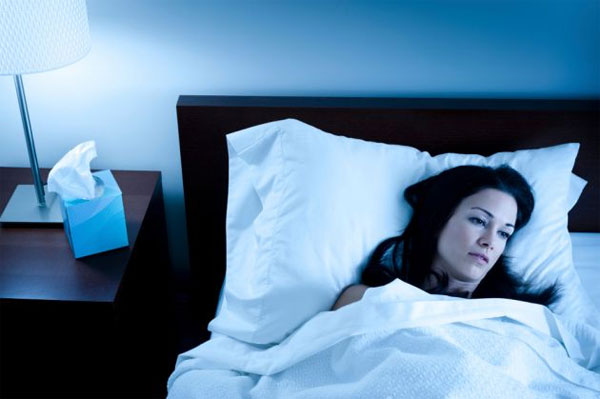Things to know about night sweats
If you wake up to a sweaty person, for example in your armpit, you need to find out why, because there may be serious hidden problems.
Night sweats are not uncommon: In a study published in the Annals of Family Medicine about one-third of primary care patients reported sweating during the most recent month. However, according to the study author, James Mold, a doctor at Oklahoma University, USA, no one knows exactly how common this situation is because most people do not report symptoms to the doctor.
In the medical review of the Journal of the American Board of Family Medicine , Mold and colleagues reported that there are a number of factors that increase the risk of night sweats including panic and sleep disturbances. sleep, fever, numbness in hands and feet, anxiety, stress and respiratory disorders during the night.

Photo: osteopathic.org
Night sweats may also be due to side effects of drugs including selective serotonin reuptake inhibitors (SSRIs), often prescribed to treat depression.
In bad cases, night sweats may be a sign of serious illness. Dr. Mold's review shows that this may be a symptom of autoimmune diseases, heart disease, endocrine disorders, gastroesophageal reflux disease, HIV infection, tuberculosis, cancer, apnea. when sleeping and panic disorder.
How do these factors make you sweat?
Your body uses sweat to lower the central temperature when it reaches a threshold called the neutral heat zone. Many causes push body temperature to this heat zone, from using thick blankets to inflammatory processes in the body when you have an infection or disease.
Some studies have even shown that mediators cause inflammation to skyrocket periodically during the night. Moreover, some diseases can affect your sympathetic nervous system or sweat glands or other factors that affect your body's ability to regulate temperature.
According to Mold and colleagues, there is another case: People who exercise at high intensity can sweat at lower temperatures. It is not clear if this may lead to night sweats, but a study in Human Kinetics found that night sweats may be a sign of excessive exercise.
The basic thing is if you get sweating every night or if you show signs of fear and sweating soaked in your shirt, you need to see a doctor.
You need to check your body temperature twice a day for a week to find out if you have a fever and record other symptoms to tell your doctor. Usually night sweats are not the only symptom when the disease is present.
The best way to reduce night sweats is to treat the cause. In the case of night sweats caused by SSRI antidepressants, in some people there is improvement by taking more drugs called alpha-adrenergic blockers .
- See the fantasy night under the talented hands of Canadian photographer
- Night vision: Second eyes
- Marvel at the beautiful day and night symmetrical photos
- See 21 photos of the breathtaking night sky
- Detecting new frogs 'tiny', excessively placed on nails
- How bad is eating at night?
- It turns out that we have been misunderstood for a long time about night owls!
- Discovery for 'night owl': Unexpected results when a night is awake
- See the spectacular beauty of the night sky
- 4 frightening consequences of eating at night without your knowledge
- 9 interesting things about stars
- Strange feeling in the dark night at the museum
 Green tea cleans teeth better than mouthwash?
Green tea cleans teeth better than mouthwash? Death kiss: This is why you should not let anyone kiss your baby's lips
Death kiss: This is why you should not let anyone kiss your baby's lips What is salmonellosis?
What is salmonellosis? Caution should be exercised when using aloe vera through eating and drinking
Caution should be exercised when using aloe vera through eating and drinking